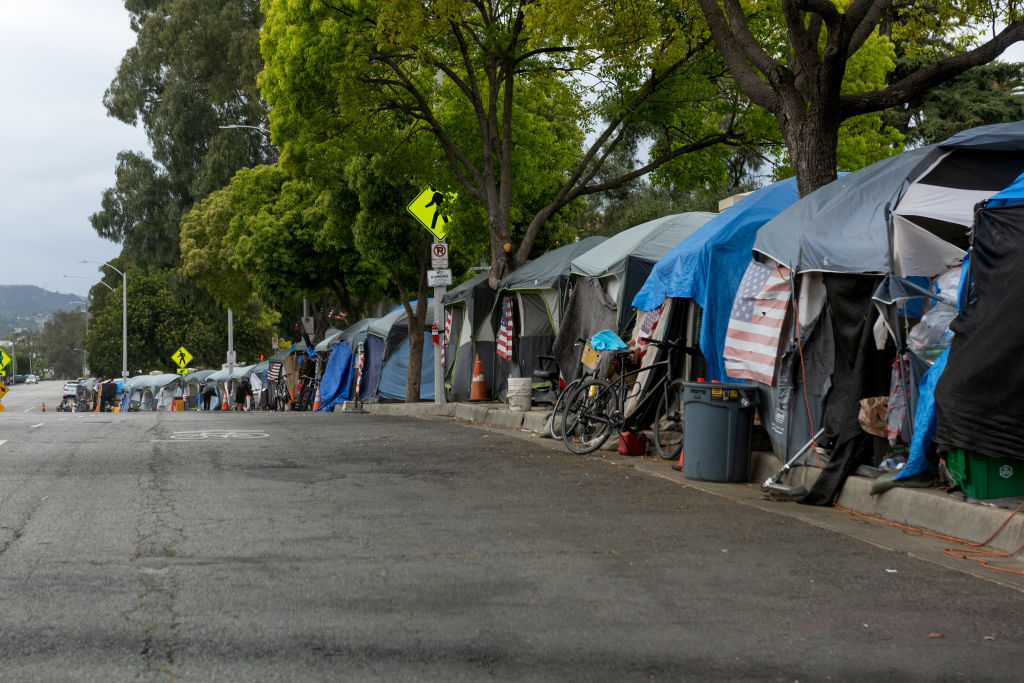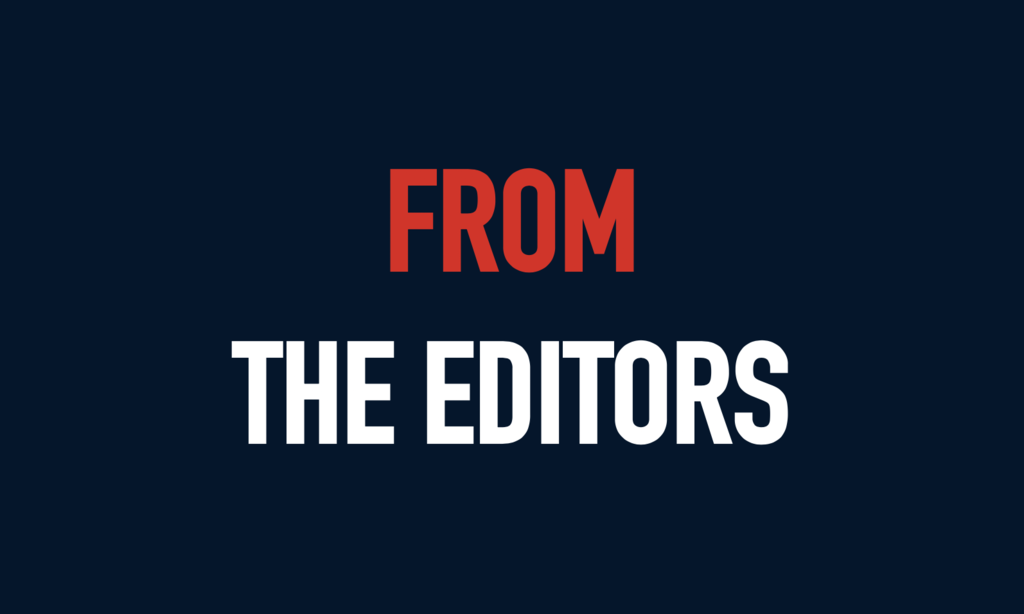A new class of overlords are making their bid for world domination.
Fully Oligarchic Luxury Californication

The tech elite have joined forces with progressive visionaries to establish a model of America’s feudal future.
What happens in California matters well beyond its borders. The Golden State’s cultural and technological influence on America, and the world, now could provide the nation’s next political template.
What California is creating can be best described as oligarchic socialism, a form of collectivism that combines hierarchy with “equity,” regulation with oligopoly, and progressive intentions with feudal results. Like so much else, the pandemic has accelerated this trend, vastly enriching the tech elite, while turning much of the working and middle classes dependent on what Marx called “the proletarian alms bag.”
In contemporary California, traditional notions of economic development and upward mobility have been replaced by subsidized housing, a state bailout for renters in default emergency aid to small businesses and enhanced unemployment payments. Once all the state’s new commitments are met California’s much ballyhooed $75 billion surplus, Chapman economist Jim Doti estimates, shrinks to a still considerable $25 billion.
With such a rich surplus, other states would consider either spending the extra cash, as Texas and other states do, on economic development, either through tax cuts, regulatory holidays, or incentives. But work and upward mobility for the middle and working classes are no longer a prime concern in the Golden State. “The culture for much of California, driven by state politics, is one of benefits (and now guaranteed income), not a jobs strategy or expectation,” suggests Michael Bernick, a former director of the state’s Employment Development Department.
Bernick notes that this approach—as opposed to boosting employment—is also popular both with the tech oligarchs and bureaucrats who together dominate the state. The synergy between Silicon Valley wealth and the expansive welfare state is clear: with seemingly unlimited capital gains and income receipts, the state can fund ever more dysfunctional schools at a high level, pay enormous pensions, and generally expand the role of a state government.
This faith in government seems odd given its record of incompetence, from the high speed rail fiasco to forcing a bailout of the marijuana industry. The state has also mishandled unemployment claims, according to the Los Angeles Times, with more than a million Californians awaiting unemployment checks that were delayed or frozen. Worse yet, the state last year gave payments of $11 billion to various scammers, including people in jail and criminals from Nigeria and Russia.
Politics, not competence, notes Lucy Dunn, head of the Orange County Business Council, plays the leading role here, particularly with Governor Newsom’s recall. “His budget seems more focused on the welfare state with an eye toward surviving recall and preparing for elections in 2022,” she observes. “Business organizations throughout the state have begged him to stop making it easier for folks to stay on the dole and get back to work.”
Some progressive ideologues hail the state as the ultimate avatar of a green capitalism that we can “believe in.” Some, such as a writer at Bloomberg, claim the state has “the best economy” in the world, pointing to the bloated stock prices of the major tech firms and the enormous growth of wealth of a relative handful.
Yet in reality, the “best” economy has not shown much resiliency in the pandemic. Overall, the wealthiest California did somewhat better than the national average, but low-income earners did considerably worse. The state now suffers the nation’s 48th highest unemployment rate and its rate of job recovery places it firmly in the bottom third of the states. Last year, Los Angeles—whose city council is more concerned with climate change than economic torpor— suffered the highest unemployment rate of the nation’s top ten metro areas, higher even than New York, according to The Seidman Institute at Arizona State University
These trends reflect an economic and policy mind-set injurious to most Californians. Yet it conforms with the rejection among the oligarchs of broad-based economic growth, particularly given the challenges of climate change and the imperative to reduce the commoners’ use of carbon-based energy. Greg Fehrenstein, who interviewed 147 digital company founders, says most believe that “an increasingly greater share of economic wealth will be generated by a smaller slice of very talented or original people. Everyone else will increasingly subsist on some combination of part-time entrepreneurial ’gig work‘ and government aid.”
To be sure, our new economic overlords are not typical rapacious anti-tax billionaires in the traditional mode; they instead see government spending as a useful tool to keep the populist pitchforks away. Numerous oligarchs—Mark Zuckerberg, Pierre Omidyar, Elon Musk, and Sam Altman, founder of the Y Combinator—have embraced this vision, including a “guaranteed wage,” usually $500 or $1,000 monthly.
This marks a departure from the old social democratic notion that the state should create conditions that allow families to enjoy upward mobility and ever greater independence. It’s a break as well from the “California model” developed by Pat Brown, California’s Governor from 1958 to 1966, who built the state’s expansive road network, public university and college system, and promoted the development of well-paying jobs in fields such as aerospace.
Whereas Pat Brown built the freeways and encouraged the growth of new communities, his son, and his son’s less thoughtful successor, have seemed intent on squashing the dreams of all but a handful of Californians. Once the exemplar of upward mobility, California has the fourth highest Gini Inequality index in the nation (behind New York, Connecticut, and Louisiana), and experienced the fifth largest expansion of inequality since 2010, according to American Community Survey data. Amidst the unfathomable wealth of the oligarchs, it suffers the country’s highest rates of cost-of-living adjusted poverty, the worst housing unaffordability in the continental U.S., and a devastating shortage of mid-skilled jobs. African Americans and Latinos do far worse in terms of income and homeownership in Los Angeles or the Bay Area, the latter of which has become among the most segregated places in the country.
California political elites passionately desire to be seen as “the cutting edge” on climate change. State policies drive electricity and fuel prices to among the highest in the nation, putting millions on the edge of “energy poverty” and discouraging price-sensitive industries out of the state. In contrast to the generally wealthy people who install solar panels or drive electric vehicles, many people in the less temperate and poorer interior find themselves far less able to pay the electricity rates that are the highest in the continental U.S.
Housing policies discourage the building of single family and suburban units in the name of saving the climate. Given the intention to slow suburban and exurban growth, while adding ever more demands on builders, the state is incapable of producing units to meet even today’s stagnant population growth. During 2020, when national house construction was increasing 6.1 percent from 2019, California’s rate was down 3.7 percent, according to Census Bureau data. Over the same time, the rate of new building was less the half that of Texas, and less than a sixth of that in Arizona and Tennessee.
The blue-collar economy is the biggest loser. Heavy industry polluters must buy “credits” to stay in the state. Eager to reduce emissions generated within the state boundaries, the state now sources much of its oil from countries like Saudi Arabia, where “California values” like gender and race equity are lesser priorities, while the state targets the local fossil fuel industry for annihilation.
Besides slowing construction growth and gutting energy jobs, the state’s policies are also damaging other blue-collar industries such as manufacturing. Despite Bloomberg’s preposterous assertion that the state has enjoyed an industrial resurgence, BLS numbers tell us the state has experienced paltry growth, below the national average, in manufacturing jobs while Los Angeles, the state’s traditional industrial powerhouse, has lost 8 percent of its industrial jobs over the past decade.
This grossly unequal economy over the long run may undermine oligarchic socialism and could redound against the very oligarchs supporting it. At the heart of the challenge lies the old question: who pays? Right now, it’s likely to be the middle and working classes, through income, real estate, and sales taxes, rather than the wealthiest oligarchs themselves. Indeed as Pro Publica’s likely unethical and perhaps illegal revelations of personal tax information show, the likes of Elon Musk and Mark Zuckerberg have been brilliant at evading taxes.
The loss of factory, energy, and food related jobs does not much impact Palo Alto, Marin, or Malibu but could spark a rebellion in the less favored parts of the state. This conflict could become fraught once market cycles change and interest rates, as seems inevitable, rise again. The one percent—who pay roughly half of the state’s income taxes—won’t always have such great years, and with the middle and working class in decline, it’s hard to see where the money will come from to support the burgeoning welfare state.
Worse yet, the prospect of wealth taxes, with plans to force people to pay even if they leave the state, and calls to raise the state’s income tax, already the nation’s highest, could add to the hegira of high-profile billionaires like Elon Musk and Larry Ellison out of state. At the same time, tech employment has been shifting to other states, with firms like Apple doing their major expansions either abroad or in lower cost areas like Austin or Raleigh-Durham. Many leading tech firms now expect a large proportion of their workforce to work remotely after the pandemic, with workers now increasingly seeking out cheaper, more scenic, and less congested climes. It is also likely that some of the most powerful firms, even Google, could become sclerotic as they take on the bureaucratic sloth associated with monopolies.
If this money train crashes or even slows, ultimately someone—perhaps from the center right or more likely the further left—could challenge the status quo. Newsom, with his massive transfer payments and weak opposition, will likely survive the ill-prepared recall with ease, but poll data suggests considerable underlying dissatisfaction. Roughly half of California residents, according to a 2019 UC Berkely poll, have considered leaving the state. Between 2014 and 2020, net domestic out-migration from California grew from 46,000 to 242,000, according to U.S. Census Bureau estimates. In Los Angeles, according to a USC survey, ten percent plan to move out this year.
Ultimately if disenchantment grows and the state faces renewed fiscal pressures, things may turn out detrimental to the oligarchs themselves. Having consented and even pushed for a feudalized society, they may find that the serfs can also rebel, seeking to confiscate their wealth to create “fully automated luxury communism” that promises hoi polloi places on easy street. Once property and wealth concentrates to the extreme, even the most powerful figures could face expropriation or worse, much like the glib French and Russian aristocrats of centuries past.
The American Mind presents a range of perspectives. Views are writers’ own and do not necessarily represent those of The Claremont Institute.
The American Mind is a publication of the Claremont Institute, a non-profit 501(c)(3) organization, dedicated to restoring the principles of the American Founding to their rightful, preeminent authority in our national life. Interested in supporting our work? Gifts to the Claremont Institute are tax-deductible.
Our elite power brokers have chosen the CCP over us.
The collapse of the last frontier—and how to save it.



